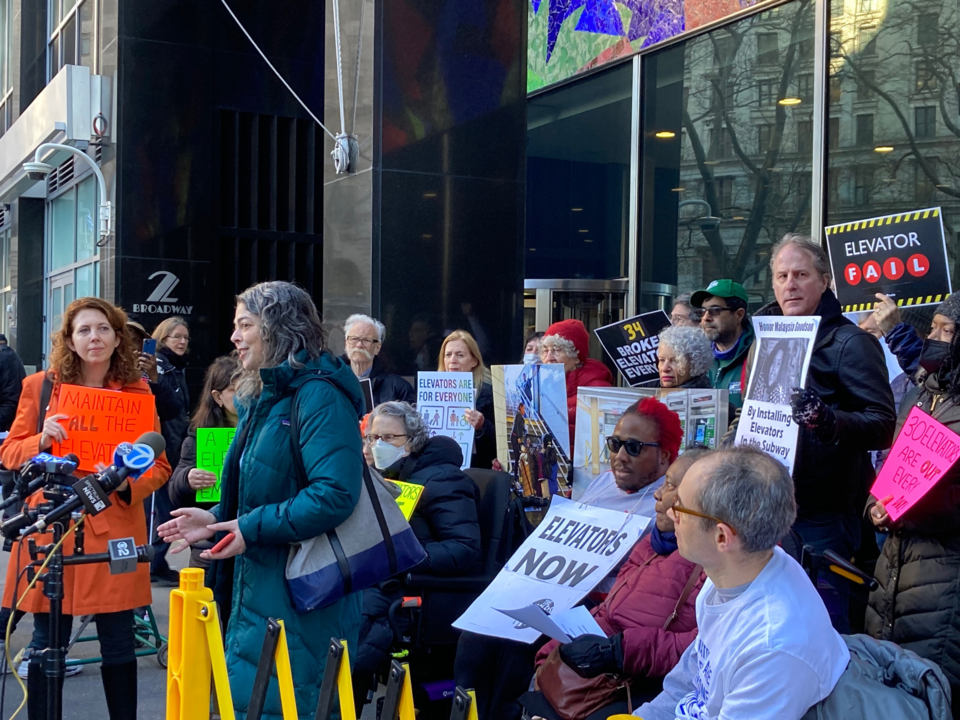Both the federal court and the New York State Supreme Court have recently granted final approval to a settlement agreement to make the New York City subway accessible for more than half a million people with disabilities who cannot use stairs to access the system.
“The approval of our settlement marks the beginning of a new era of accessibility in New York City,” said Joe Rappaport, executive director of Brooklyn Center for Independence of the Disabled.
“For the first time, the courts, state and city leaders, and the MTA itself have agreed to something the disability community knew for decades: No one should be shut out of the subways, our city’s lifeblood. Station by station, this agreement will right a wrong to the eventual benefit of millions of people.”
Currently, only a quarter of stations are usable by people with disabilities affecting their mobility. Under the terms of the agreement — which was reached on April 24 — the MTA will add elevators or ramps to create a stair-free path of travel to at least 95% of the system’s currently inaccessible subway stations by 2055.
The MTA will be dedicating 14.69% of each of its 5-year Capital Plan budgets to station accessibility, barring unexpected critical needs. Should such unexpected needs arise, the MTA commits to devoting no less than 8% of its total Capital Plan to station accessibility.
The Agreement also ensures that stations will be made accessible as part of many renovation and rehabilitation projects. In total, the MTA commits that in addition to the 81 stations currently slated for accessibility in the 2020-2024 Capital Program, 85 more stations will be accessible by 2035, another 90 by 2045, and the final 90 by 2055.
The Settlement Agreement resolves two lawsuits brought against the MTA by various disability advocates including the BCID, as well as Sasha Blair-Goldensohn, Dustin Jones, Jessica De La Rosa and Jean Ryan, represented by Disability Rights Advocates.
The first lawsuit, filed in 2017 in New York State Supreme Court, alleged violations of the New York City Human Rights Law because of the overwhelming inaccessibility of the current subway system.
The second lawsuit, filed in 2019 in federal court in the Southern District of New York, alleged that the MTA consistently renovates and rehabilitates subway stations without adding stair-free access as part of those renovations. The settlement agreement, granted final approval by the federal court on April 7, 2023, and by the state court on April 24, 2023, settles both lawsuits.
“I’ve been waiting for this moment since I was 15 years old,” said Jessica De La Rosa, who uses a wheelchair.
“I am thrilled that the subways will be more accessible for the next generation of 15-year-old disabled children to ride the subway in their city like every other New Yorker. But it doesn’t stop here MTA, let’s keep going!”




